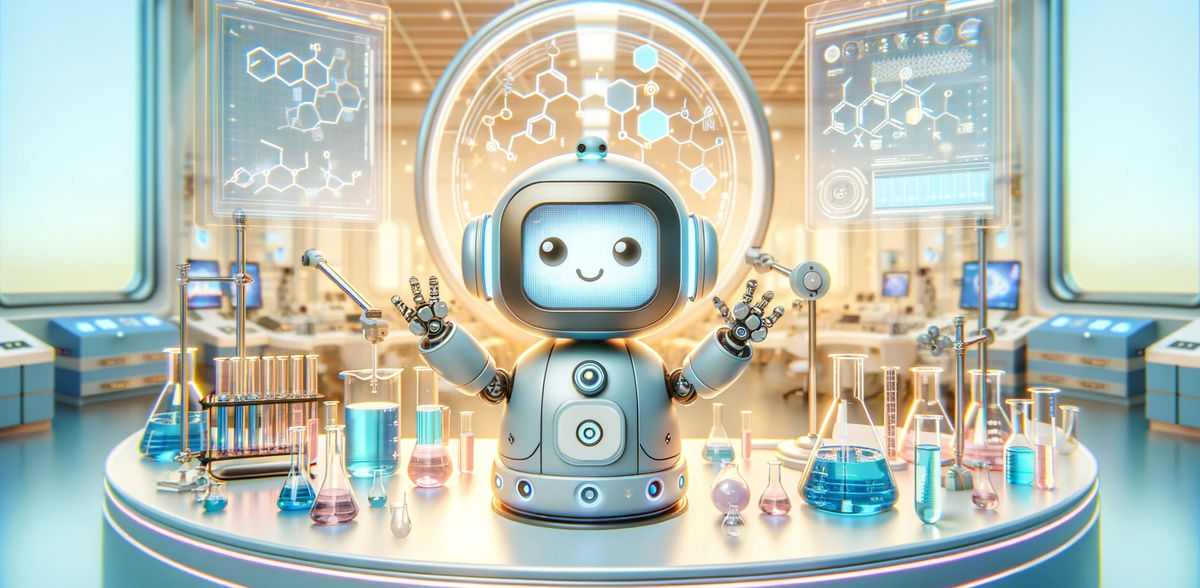Autonomous synthesis robot uses AI to speed up chemical discovery
Impressive ingenuity
Chemists of the University of Amsterdam (UvA) have developed an autonomous chemical synthesis robot with an integrated AI-driven machine learning unit. Dubbed ‘RoboChem’, the benchtop device can outperform a human chemist in terms of speed and accuracy while also displaying a high level of ingenuity. As the first of its kind, it could significantly accelerate chemical discovery of molecules for pharmaceutical and many other applications. RoboChem’s first results were published on 25 January in the journal Science.
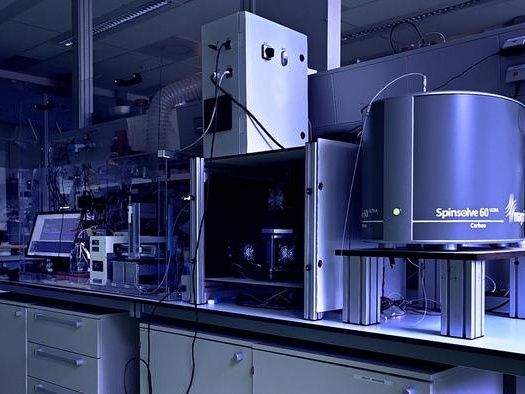
RoboChem is an autonomous benchtop platform for fast, accurate and around-the-clock chemical synthesis.
University of Amsterdam
RoboChem was developed by the group of Prof. Timothy Noël at the UvA’s Van ‘t Hoff Institute for Molecular Sciences. Their paper shows that RoboChem is a precise and reliable chemist that can perform a variety of reactions while producing minimal amounts of waste. Working autonomously around the clock, the system delivers results quickly and tirelessly. Noël: ‘In a week, we can optimise the synthesis of about ten to twenty molecules. This would take a PhD student several months.’ The robot not only yields the best reaction conditions, but also provides the settings for scale-up. ‘This means we can produce quantities that are directly relevant for suppliers to the pharmaceutical industry, for example.’
RoboChem’s ‘brain’
The expertise of the Noël group is in flow chemistry, a novel way of performing chemistry where a system of small, flexible tubes replaces beakers, flasks and other traditional chemistry tools. In RoboChem, a robotic needle carefully collects starting materials and mixes these together in small volumes of just over half a millilitre. These then flow through the tubing system towards the reactor. There, the light from powerful LEDs triggers the molecular conversion by activating a photocatalyst included in the reaction mixture. The flow then continues towards an automated NMR spectrometer that identifies the transformed molecules. These data are fed back in real-time to the computer that controls RoboChem. ‘This is the brain behind RoboChem,’ says Noël. ‘It processes the information using artificial intelligence. We use a machine learning algorithm that autonomously determines which reactions to perform. It always aims for the optimal outcome and constantly refines its understanding of the chemistry.’
Impressive ingenuity
The group put a lot of effort into substantiating RoboChem’s results. All of the molecules now included in the Science paper were isolated and checked manually. Noël says the system has impressed him with its ingenuity: ‘I have been working on photocatalysis for more than a decade now. Still, RoboChem has shown results that I would not have been able to predict. For instance, it has identified reactions that require only very little light. At times I had to scratch my head to fathom what it had done. You then wonder: would we have done it the same way? In retrospect, you see RoboChem’s logic. But I doubt if we would have obtained the same results ourselves. Or not as quickly, at least.’
The researchers also used RoboChem to replicate previous research published in four randomly selected papers. They then determined whether Robochem produced the same – or better – results. ‘In about 80% of the cases, the system produced better yields. For the other 20%, the results were similar,’ Noël says. ‘This leaves me with no doubt that an AI-assisted approach will be beneficial to chemical discovery in the broadest possible sense.’
Breakthroughs in chemistry using AI
According to Noël, the relevance of RoboChem and other ‘computerised’ chemistry also lies in the generation of high-quality data, which will benefit the future use of AI. ‘In traditional chemical discovery only a few molecules are thoroughly researched. Results are then extrapolated to seemingly similar molecules. RoboChem produces a complete and comprehensive dataset where all relevant parameters are obtained for each individual molecule. That provides much more insight.’
Another feature is that the system also records ‘negative’ data. In current scientific practice, most published data only reflects successful experiments. ‘A failed experiment also provides relevant data,’ says Noël. ‘But this can only be found in the researchers' handwritten lab notes. These are not published and thus unavailable for AI-powered chemistry. RoboChem will change that, too. I have no doubt that if you want to make breakthroughs in chemistry with AI, you will need these kinds of robots.’
Original publication
Other news from the department science
These products might interest you
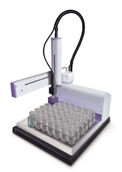
MiniLab AR & AP by SEAL Analytical
Robot-assisted analysis of pH, conductivity, BOD
Reduce your workload and increase reliability in the laboratory
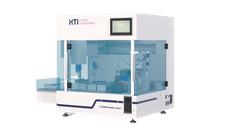
X-TubeProcessor_Smart by HTI Automation
The smart solution for filling and labeling your HPLC, cryo and micro tubes
From opening to closing. Free your laboratory from monotonous work
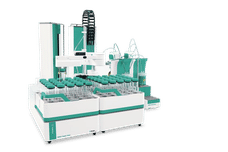
OMNIS by Metrohm
Comprehensive water analysis - fully automated
pH-value, conductivity, and acid-base capacity without manual sample size adjustment

Get the chemical industry in your inbox
By submitting this form you agree that LUMITOS AG will send you the newsletter(s) selected above by email. Your data will not be passed on to third parties. Your data will be stored and processed in accordance with our data protection regulations. LUMITOS may contact you by email for the purpose of advertising or market and opinion surveys. You can revoke your consent at any time without giving reasons to LUMITOS AG, Ernst-Augustin-Str. 2, 12489 Berlin, Germany or by e-mail at revoke@lumitos.com with effect for the future. In addition, each email contains a link to unsubscribe from the corresponding newsletter.
Most read news
More news from our other portals
See the theme worlds for related content
Topic world Synthesis
Chemical synthesis is at the heart of modern chemistry and enables the targeted production of molecules with specific properties. By combining starting materials in defined reaction conditions, chemists can create a wide range of compounds, from simple molecules to complex active ingredients.

Topic world Synthesis
Chemical synthesis is at the heart of modern chemistry and enables the targeted production of molecules with specific properties. By combining starting materials in defined reaction conditions, chemists can create a wide range of compounds, from simple molecules to complex active ingredients.
Topic world Digitalization in the laboratory
The topic world Digitalization in the lab presents innovations and trends from digital data systems (ELN, LIMS) to laboratory robots and networked devices (IoT) to AI and machine learning.

Topic world Digitalization in the laboratory
The topic world Digitalization in the lab presents innovations and trends from digital data systems (ELN, LIMS) to laboratory robots and networked devices (IoT) to AI and machine learning.
Last viewed contents
Order_of_reaction
Superatom
Nicoderm
Manganese_nodule
Expanding when it shouldn't - New material with exceptional negative compressibility

